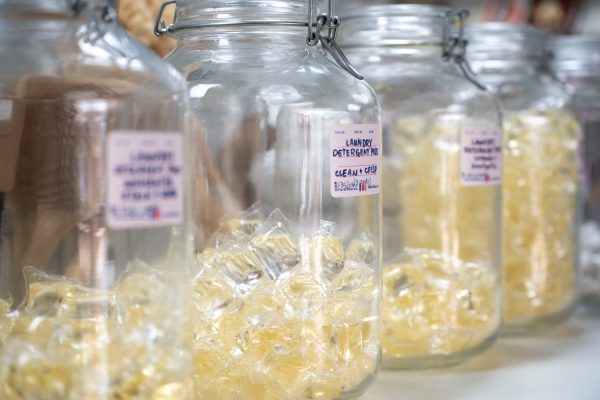Business courses now available to UI pharmacy students to give a competitive edge
A new program is available for pharmacy students to expand their skills to include business analytics, hiring and retaining top talent, and negotiations to better prepare them for a future in healthcare.
The Old Capitol building is seen in 2018.
November 14, 2018
The University of Iowa College of Pharmacy has partnered with the Office of Health Care Leadership Education to produce a program that will teach pharmacy students business skills.
With coursework created by the Tippie College of Business, the program provides half-day business-leadership education courses that encompass a wide range of skills necessary to better prepare pharmacy students for business settings in the health-care field.
Alan Reed, the director of the UI Hospitals & Clinics Organ Transplant Center, came up with the initial idea for the course.
Alexander Taylor, the Tippie associate director of executive education programs, Reed was so enthusiastic about the business education he received as a student at the UI that he believed all physicians should obtain a degree of basic business skills to help them manage the business side of health care.
“This last spring, in March, we piloted a program [at the UI] to just put our toe in the water and see what the interest was, and the interest was substantial,” Taylor said. “We had more than 50 participants learning business analytics for health-care professionals.”
Now, the collaboration among Tippie, the Carver College of Medicine, and the College of Public Health provides business-leadership education for the College of Pharmacy in the form of six courses taken over a period of three semesters. Taylor said the program is student-driven by a student leadership team that discusses the types of business education they would like to receive to augment their pharmacy education.
Second-year pharmacy student Matthew Stahl said topics covered by the courses include business analytics, talent selection and retention, negotiations, and health-care structure.
“A lot of [students] are going to go on to own a pharmacy someday or be a part of a care team taking care of patients, so having some kind of business judgment to be able to make those decisions is super helpful,” Stahl said.
RELATED: Local pharmacies scramble in light of the EpiPen shortage
Taylor said the classes give students a competitive edge over other pharmacy colleges. He and others hope to expand the program to other UI health-care fields, including the College of Dentistry and the College of Nursing.
Pharmacy student Mohammed Fredericks, a member of the student-leadership team, said one of the biggest benefits of the program is having the ability to dive deeper into individual concepts and scenarios students may experience in the future.
He said the need for pharmacy students to learn these business skills is becoming much more important because of how the health-care field is shifting.
The field is moving from a “fee for service” model to a value-based system in which pharmacists are paid for the number of people they are able to keep out of the hospitals with the medicine they prescribe, he said.
RELATED: Independent pharmacies shutting down, people left with few options
“The way the current system is set is not the appropriate way to handle those processes,” Fredericks said. “In order to know how to change those processes, you need business skills, and that’s where this program comes in. It’s allowing us to understand how to develop these processes and develop the mindset to make the shift to the value-based model.”
Stahl said he believes the move toward teaching business to pharmacy students is incredibly important when it comes to improving students’ ability to lead teams and promote the best patient outcomes possible.
“People can do that without business knowledge, but I think if you have that business knowledge, you’re going to have techniques and different methods that we haven’t learned in pharmacy school,” he said. “They’re going to be different applicable methods that could really make a difference.”





















